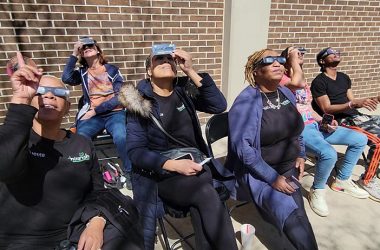A resolution calling on Congress to fund menopause research will be introduced by Cook County Commissioner Monica Gordon at the National Association of County Officials at its summer meeting.

Gordon said the county resolution asked for additional funding to include the long-lasting effects of menopause on women’s health. She also asked that the Cook County Board request more funding for education on the symptoms and effects of menopause for medical workers — including primary doctors, gynecologists and specialists — to help them identify symptoms leading to, during and after menopause.
Gordon represents Flossmoor as the county board’s 5th District representative.
President Biden on March 18 signed an executive order to expand the federal government’s research into women’s health, including midlife conditions like menopause, arthritis and heart disease, as well as issues specifically affecting women in the military.
Biden’s executive order requires agencies to report annually their investments in women’s health research and to study ways that artificial intelligence can be used to advance such research. The National Institutes of Health is expected to increase by 50% its investments in small businesses focused on women’s health. The Defense Department plans to invest $10 million to learn more about cancers and mental health issues affecting women in active military service.
The women’s health issue got a recent boost when first lady Jill Biden and actress Halle Berry held a news conference at the University of Illinois at Chicago in January with Dr. Pauline Maki, who is doing research on menopause.
“This resolution was already in the works when I learned the first lady was coming to Chicago. I worked in the pharmaceutical industry and learned how low levels of estrogen and progesterone raise the risk of heart disease, osteoporosis, stroke, lead poisoning, urinary incontinence and oral issues like cavities,” Gordon said. “And it’s worse for Black women.”
According to a recent study by Carrot Fertility, 6,000 women reach menopause every day. Maki, a professor of psychiatry at UIC, has found a clear correlation between the number of hot flashes a woman experiences and her memory performance. On average, Black and brown women have a more difficult time with menopause, more severe symptoms and suffer from hot flashes for 10 years.
“Hot flashes disrupt sleep, and sleep is one of those things we need for our heart health and brain health,” Maki said in a TV interview. “If we look at my area alone, which is Alzheimer’s disease, Black and brown women are the group that’s at highest risk.”
Since there’s no cure for Alzheimer’s disease, Maki said the economic impact could cost Americans tens of trillions of dollars.
“So, by understanding menopause in the brain, we can help women bring to late life the healthiest brain that we can so that when the pathology of Alzheimer’s disease emerges, if it does, their brains are resilient to it,” Maki said.




